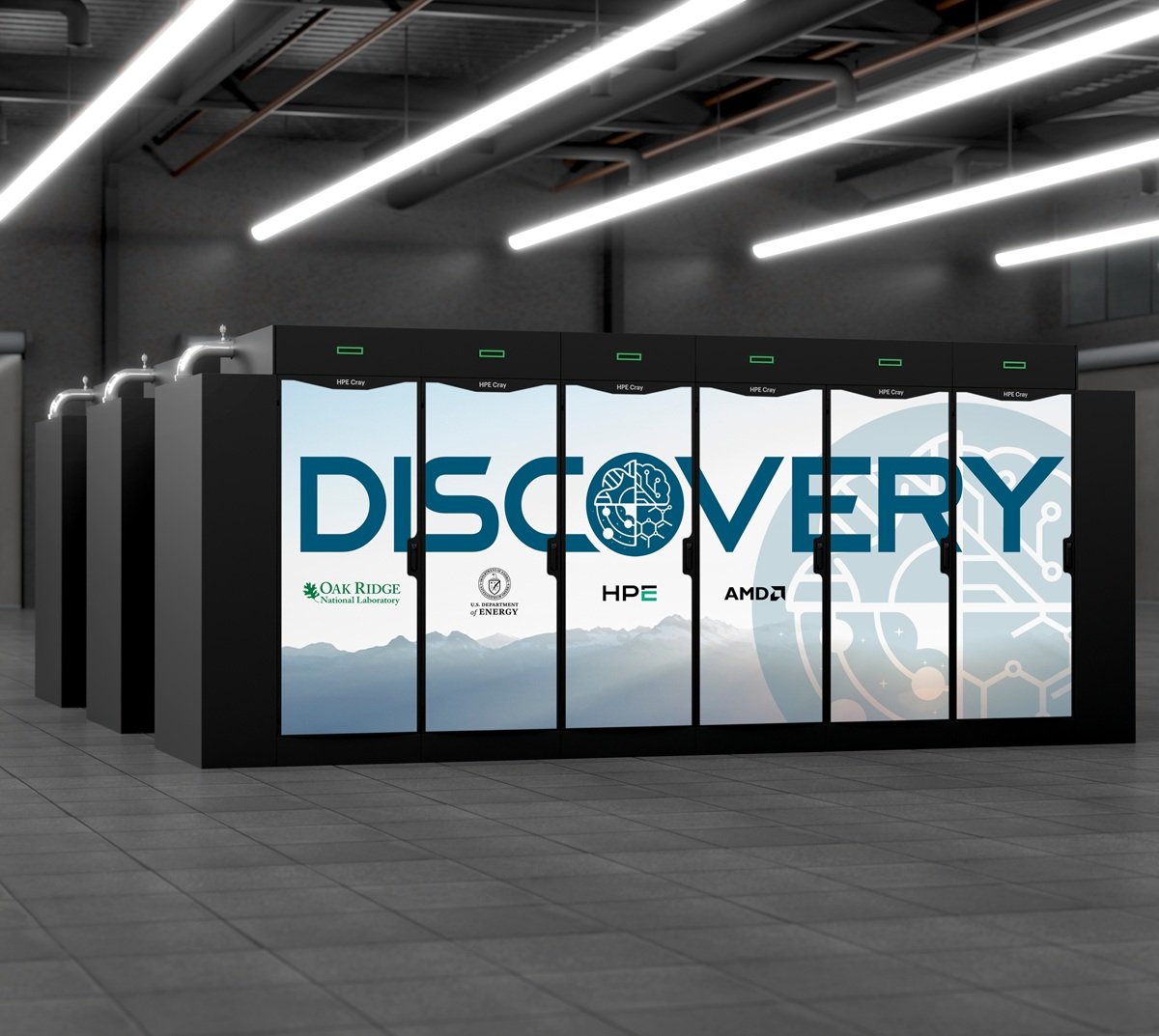
"HPE is set to build a successor to the Frontier exascale system for America's Oak Ridge National Laboratory, based on the next generation of its Cray supercomputer platform, plus a separate AI cluster to advance machine learning with a multi-tenant cloud-like platform. The Discovery system will "bolster productivity up to 10x," according to HPE, and like many other supercomputers will be used for scientific research into various areas including medicine, cancer research, nuclear energy, and aerospace."
"Discovery will be based on HPE's Cray Supercomputing GX5000, the next iteration of its supercomputing architecture, and will also feature a new Cray Storage Systems K3000 running the DAOS object storage platform, plus the next generation of Cray's Slingshot high-performance networking. HPE says the Discovery nodes will be built with AMD's "Venice" (a code name) server processors, which are not due to be launched until next year, plus Instinct MI430X GPUs - also due next year - for the level of performance required for modeling, simulation, and AI projects."
"Oak Ridge issued a request for proposals (RFP) for a successor to Frontier last year, with an expected delivery date of late 2027 to early 2028 and anticipated budget of $500 million. HPE now says delivery of Discovery is expected in 2028, with user operations set to begin in 2029. The national laboratory will also receive a second HPE-built system, Lux, the AI cluster intended to support both training and inference work at the site. This is expected to be installed early in 2026."
HPE will build Discovery, a successor to the Frontier exascale system for Oak Ridge National Laboratory, plus Lux, a separate AI cluster for training and inference. Discovery is based on the Cray Supercomputing GX5000 with Cray Storage Systems K3000 running DAOS, and next-generation Cray Slingshot networking. Nodes will use AMD "Venice" server processors and Instinct MI430X GPUs, both due next year. Delivery of Discovery is expected in 2028 with user operations in 2029; Lux is expected to be installed early in 2026. The project has an anticipated budget of $500 million and aims to accelerate scientific research and AI workloads.
Read at Theregister
Unable to calculate read time
Collection
[
|
...
]